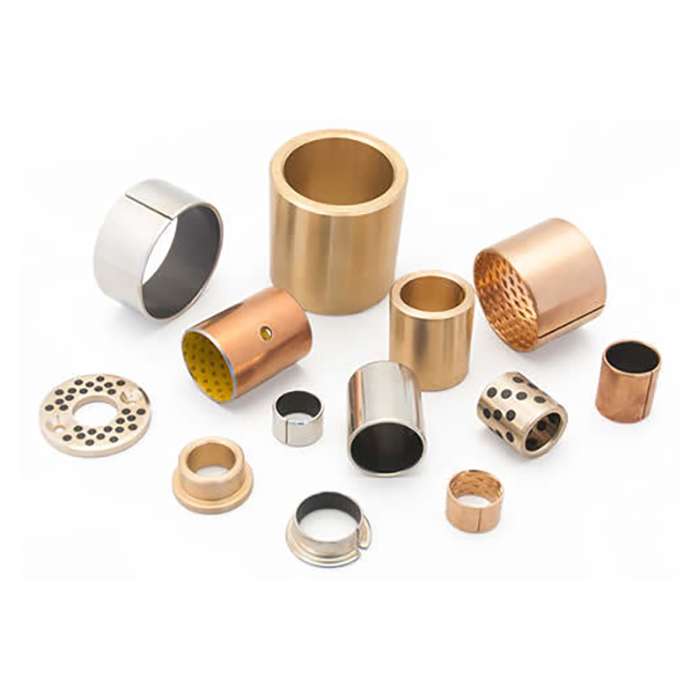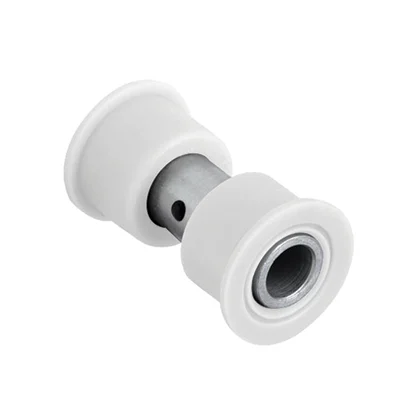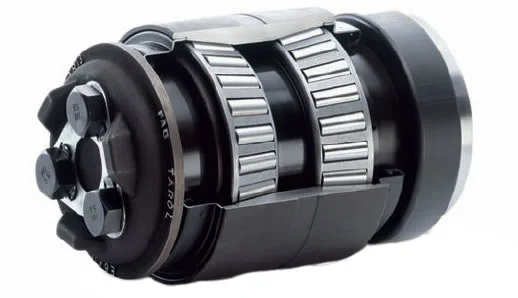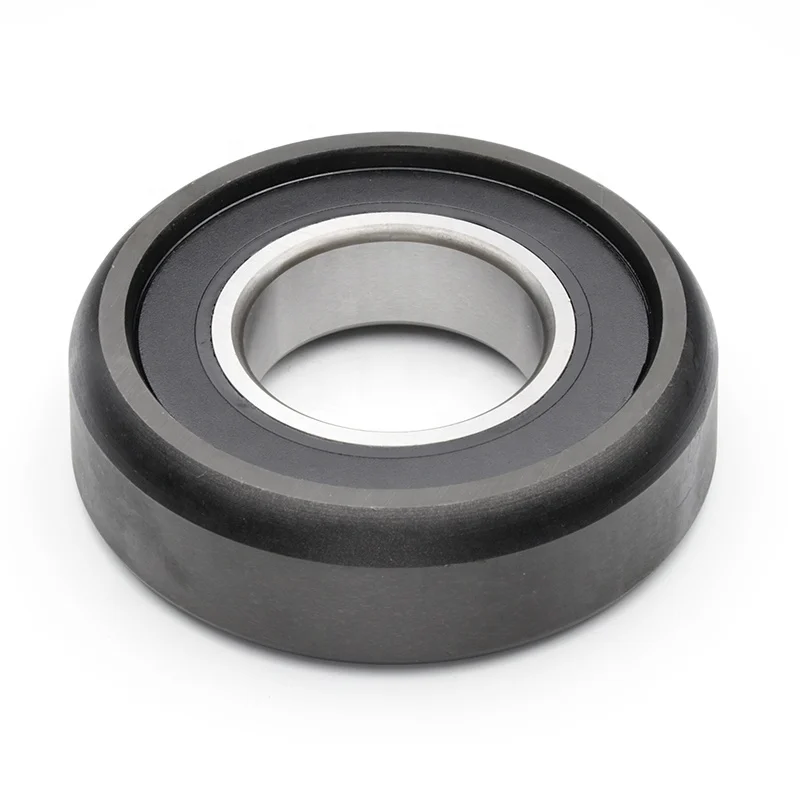Smooth Operations: The Plain Bearing Guide

Table of Contents
Plain bearings, often unsung heroes of machinery, work quietly behind the scenes to enable the smooth operation of a wide array of mechanical systems. In this comprehensive guide, we embark on an exploration of the fascinating realm of plain bearings, seeking to understand what they are, how they function, and, most importantly, why they hold such paramount significance in the world of mechanics.
Understanding Plain Bearings
What Are Plain Bearings?
Plain bearings, sometimes referred to as sleeve bearings or bushings, are indispensable components within the realm of machinery. They fulfill a pivotal role by providing essential support for both rotational and linear movements. The basic structure of plain bearings typically comprises a shaft, a bushing, and often a liner. These components collectively work in harmony to mitigate friction and wear, thereby facilitating the efficient functioning of the machinery they are integrated into.
Types of Plain Bearings
Diversity is a defining characteristic of plain bearings, with various types catering to different applications and requirements. Among the most common are:
- Sleeve Bearings: These straightforward and cost-effective bearings are ideal for applications with moderate loads.
- Flanged Bearings: Equipped with a flange, these bearings offer added stability, making them suitable for specific applications.
- Thrust Bearings: These specialized bearings are designed to support axial loads, maintaining precise component alignment.
- Journal Bearings: Frequently employed in demanding environments such as engines and heavy machinery, these bearings are known for their reliability and resilience under extreme conditions.
Plain Bearings vs. Rolling Bearings
While rolling bearings, including ball and roller bearings, enjoy extensive use, plain bearings offer their unique advantages and play an irreplaceable role in specific applications. They excel in scenarios characterized by heavy loads, shock resistance, and elevated temperatures, making them indispensable in numerous industries.
Common Applications of Plain Bearings
Plain bearings find a home in a wide array of machinery, from industrial equipment to everyday household appliances. Their remarkable versatility positions them as vital components that ensure operational efficiency across various sectors.
The Anatomy of Plain Bearings
A comprehensive grasp of plain bearings necessitates delving into their intricate composition and the materials employed in their construction. Bearings typically consist of three primary components: the shaft, bushing, and often, a liner. The selection of materials, such as bronze, plastic, or composite materials, depends on factors like load capacity, operational speed, and environmental conditions.
Plain Bearing Lubrication
Importance of Lubrication
The role of lubrication in the realm of plain bearings cannot be overstated. It acts as the lubricating agent that mitigates friction, heat generation, and wear, thus extending the operational lifespan of the bearing. Two primary methods of lubrication are widely employed: grease lubrication and oil lubrication.
Lubrication Challenges and Solutions
Effectively managing lubrication can pose challenges. This section delves into common lubrication issues and presents practical solutions for addressing them.
Bearing Selection Considerations
Selecting the most suitable plain bearing for a specific application involves careful consideration of several factors, including the magnitude of the load, operational speed, environmental conditions, maintenance requirements, and cost considerations. Additionally, plain bearings often offer customization options to meet specialized needs.
Installation and Maintenance
Proper Installation Techniques
Understanding the nuances of installing plain bearings is essential to ensure optimal performance and longevity. This section provides valuable insights into best practices for bearing installation.
Routine Maintenance Practices
Regular maintenance is the key to extending the operational life of plain bearings. This segment covers recommended maintenance routines and offers guidance for troubleshooting common issues that may arise during the lifespan of these essential components.
Benefits of Using Plain Bearings
Low Friction and Energy Efficiency
One of the most notable advantages of plain bearings is their capacity to reduce friction significantly. This attribute translates into energy savings and reduced wear and tear on machinery, culminating in both economic and operational benefits.
Cost-Effectiveness
The inherent durability of plain bearings, coupled with their minimal maintenance requirements, makes them a cost-effective choice for machinery applications. Over the long term, the cost-efficiency of plain bearings is unquestionable.
Durability and Longevity
Plain bearings are engineered to withstand the test of time, even when subjected to harsh operational conditions. Their durability and longevity are crucial factors in reducing the frequency of replacements and thereby minimizing operational disruptions.
Challenges and Solutions
Plain bearings, like any mechanical component, are not without their challenges. This section comprehensively addresses issues such as wear and tear, alignment problems, and contamination, providing effective solutions to ensure the seamless operation of machinery.
Case Studies
Real-world success stories and practical applications of plain bearings serve as vivid examples of their paramount importance in a myriad of industries. These case studies highlight the diverse scenarios in which plain bearings excel, showcasing their versatility and effectiveness.
Innovations in Plain Bearing Technology
The world of plain bearing technology is not static. Advancements continue to reshape this field, with innovations like self-lubricating bearings, novel materials, and the integration of the Internet of Things (IoT) for predictive maintenance taking center stage. This section provides a glimpse into the future of plain bearing technology.
The Role of Plain Bearings in Industry
Plain bearings play a pivotal role across various industries, serving as the linchpin that ensures the efficient operation of machinery. Their significance spans sectors such as automotive, aerospace, and manufacturing, making them indispensable for precision and reliability.
Sustainability and Plain Bearings
In an era of growing environmental consciousness, sustainability is a paramount consideration. This section explores eco-friendly bearing solutions and delves into their environmental impact. Plain bearings have a part to play in minimizing the carbon footprint and promoting environmentally responsible practices.
Tips for Choosing a Reliable Bearing Supplier
Selecting the right supplier is a critical aspect of obtaining high-quality plain bearings. This segment offers invaluable guidance on evaluating supplier credibility, assessing product quality, and exploring customization options to meet specific needs.
The Future of Plain Bearings
The horizon of plain bearings is marked by emerging trends and transformative technologies. This section provides insights into what the future holds for plain bearings and offers predictions regarding the anticipated growth of this pivotal industry.
Conclusion
In conclusion, plain bearings are the unsung heroes of machinery, diligently ensuring the seamless operation of a multitude of mechanical systems. An understanding of their various types, applications, benefits, and challenges is indispensable for anyone operating within the industrial landscape. As technology continues to advance, plain bearings evolve in tandem, continuing to uphold their vital role in ensuring the efficiency and reliability of machinery across diverse industries. Whether you find yourself in the realms of automotive, aerospace, or manufacturing, plain bearings remain the silent driving force behind operational success.
Related Posts
sensor bearings

Delrin Bearings: Lubrication-Free Long Life

Locomotive Bearing Specs That Matter Most

